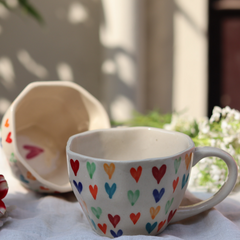After the ritual of Holika Dahan, families and communities often gather for a special dinner to celebrate the occasion. This dinner is a time for sharing joy, camaraderie, and delicious food with loved ones. The menu for the Holika Dahan dinner may vary depending on regional preferences, family traditions, and personal tastes, but it typically includes a variety of festive dishes. Some common items that might be served for the Holika Dahan dinner include:
-
Traditional Indian Cuisine: This may include dishes such as dal (lentil curry), sabzi (vegetable curry), paneer dishes, roti or naan (Indian bread), rice, and various chutneys and pickles. 
2. Special Sweets or Desserts: Sweet treats are an essential part of any Indian celebration. Families often prepare or buy a variety of sweets such as gulab jamun, jalebi, rasgulla, kheer (rice pudding), barfi, and other traditional Indian desserts. 
3. Snacks and Appetizers: To start off the meal, there might be some snacks and appetizers like samosas, pakoras (fritters), chaat (savory snacks), or assorted nuts and dried fruits. 
4. Beverages: Beverages like lassi (a yogurt-based drink), fruit juices, sherbets, or traditional Indian drinks like thandai (a spiced milk drink) might be served to accompany the meal.
5. Festive Specialties: Depending on the region and family traditions, there might be specific dishes that are prepared only for special occasions like Holika Dahan. These could include regional delicacies or family recipes passed down through generations.
Overall, the Holika Dahan dinner is a time for families to come together, enjoy delicious food, and celebrate the victory of good over evil in a spirit of joy and togetherness. It's a cherished tradition that adds warmth and festivity to the celebrations of Holi.
Conlcusion:-
The conclusion of Holika Dahan marks the culmination of a significant and spiritually rich festival in Hindu culture. As the flames of the bonfire die down and the embers fade, it symbolizes the triumph of good over evil, the victory of righteousness over wickedness, and the onset of hope and renewal.
The rituals performed during Holika Dahan, including the lighting of the bonfire and the burning of the effigy, carry profound symbolism. They serve as reminders of the enduring power of faith, devotion, and the belief in the ultimate triumph of truth.
Beyond its religious significance, Holika Dahan fosters a sense of community, bringing families and communities together in celebration and camaraderie. It is a time for sharing joy, bonding with loved ones, and creating cherished memories that will be treasured for years to come. As the night of Holika Dahan draws to a close, it leaves behind a lingering sense of positivity, purity, and spiritual rejuvenation. It sets the stage for the vibrant festivities of Holi, a time when people come together to revel in the colors of spring and celebrate the joy of life.





